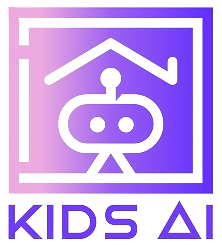
From Classroom to Coding: Exploring the Rise of Kids AI Education
Artificial Intelligence (AI) has permeated every aspect of our lives, from voice-activated assistants in our homes to recommendation algorithms that shape our online experiences. The rapid advancement in AI has opened up new avenues and opportunities, sparking a rising interest in AI education for children. With the aim of preparing them for a future that will be shaped by technological developments, educators and parents are increasingly turning to AI education to give kids an early start.
AI education for children focuses on introducing them to the concepts, frameworks, and applications of AI, enabling them to develop critical thinking, problem-solving, and analytical skills. It goes beyond the surface-level understanding of AI as simply a futuristic technology and delves into the fundamentals of algorithms, data analysis, and machine learning. By providing hands-on experiences in coding and programming, kids AI education equips children with the tools to create and implement AI solutions.
The rise of AI education for children can be attributed to several factors. First and foremost, the job market of the future will likely be dominated by AI-related professions. The World Economic Forum predicts that AI-related jobs will grow by 46% over the next few years. By exposing children to AI education early on, they can gain a competitive edge and be better prepared for the evolving job landscape.
Moreover, AI education instills valuable skills that are transferable to various disciplines. Critical thinking, problem-solving, and creativity are all integral components of AI education, enabling children to approach complex problems systematically, think outside the box, and devise innovative solutions. These skills are not only essential in AI-related fields but also in numerous other industries.
AI education also plays a vital role in fostering ethical considerations and responsible AI development. Children are introduced to ethical implications surrounding AI, such as privacy, bias, and transparency, early in their educational journey. With a foundation in ethical AI practices, they can contribute to a future where AI is utilized responsibly and ethically.
Several organizations and initiatives have emerged to meet the growing demand for kids AI education. For instance, Google’s AI Education offers resources and courses specifically designed for educators and students to learn and engage with AI. Another example is “AI for K-12” by AI4ALL, which promotes AI education by providing opportunities for underserved populations. These initiatives aim to democratize access to AI education and inspire children from diverse backgrounds to pursue AI-related fields.
The integration of AI education into mainstream curricula is also becoming more prevalent. Educational institutions worldwide are recognizing the importance of incorporating AI education into their programs. By adapting classroom curriculum to include AI concepts, schools facilitate a smooth transition from traditional subjects to AI education, ensuring that children have exposure to AI at an early age.
In conclusion, the rise of kids AI education is a response to the increasing reliance on AI in our daily lives and the anticipation of AI’s future prominence. By equipping children with the skills and knowledge needed to navigate the AI-driven world, we empower them to become active creators and consumers of AI technology. Through initiatives and organizations, as well as the integration of AI in the classroom, we are ensuring that the next generation is prepared for the challenges and opportunities that AI brings.



